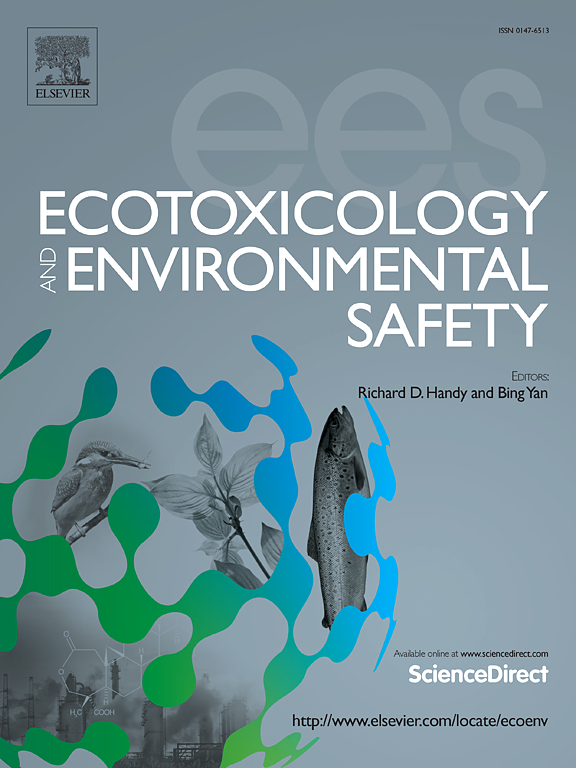Insights into the impact of different phytoremediation strategies on antibiotic resistance genes at the metagenomic level in real scenarios
IF 6.2
2区 环境科学与生态学
Q1 ENVIRONMENTAL SCIENCES
引用次数: 0
Abstract
Engineered phytoremediation strategies provide cost effective options for eliminating antibiotics and antibiotic resistance genes (ARGs) from wastewater. However, there is a knowledge gap in understanding the impact of these phytoremediation strategies on the on the diversity and composition of ARGs as well as the key driving biotic and biological factors of ARGs at the metagenomic level in real scenarios. Through metagenomic sequencing, this study demonstrates that phytoremediation with Iris pseudacorus L., Myriophyllum verticillatum L., Eichhornia crassipes (Mart.) Solms and Oenanthe javanica (Bl. DC) significantly alters the pattern of antibiotic resistome. This study is the first to reveal, at the omics level, that phytoremediation enhances the diversity of ARGs (3.2 %∼11.6 % improvement), despite reducing their absolute abundances. Furthermore, this study highlights that plant varieties have a significant impact on the performance of phytoremediation in mitigating ARGs. The non-dominant bacterial taxa, specifically Verrucomicrobia, Planctomycetes, and Actinobacteria, play a crucial role in shaping the pattern of the antibiotic resistome during the wastewater treatment. The changes in the total organic carbon, total nitrogen and antibiotics robustly influence the environmental behaviors of antibiotic resistome and microbiome. In summary, this study gives insight into the impact of different phytoremediation strategies on mitigating ARGs at the omics level in real scenarios.
深入了解不同植物修复策略对抗生素抗性基因在宏基因组水平上的影响
工程植物修复策略为消除废水中的抗生素和抗生素抗性基因(ARGs)提供了经济有效的选择。然而,在了解这些植物修复策略对ARGs多样性和组成的影响,以及在真实情景中在宏基因组水平上驱动ARGs的关键生物和生物学因素方面存在知识缺口。本研究通过宏基因组测序,证实了鸢尾(Iris pseudoacorus L.)、狐尾藻(Myriophyllum verticillatum L.)、鸢尾草(Eichhornia crassipes (Mart.))的植物修复作用。Solms和Oenanthe javanica (Bl. DC)显著改变了抗生素抗性组的模式。这项研究首次在组学水平上揭示,尽管降低了ARGs的绝对丰度,但植物修复增强了ARGs的多样性(提高了3.2 % ~ 11.6 %)。此外,本研究还强调了植物品种对缓解ARGs的植物修复性能有显著影响。非优势细菌分类群,特别是Verrucomicrobia, plantomycetes和放线菌,在废水处理过程中对抗生素抗性组的形成起着至关重要的作用。总有机碳、总氮和抗生素的变化对抗生素抗性组和微生物组的环境行为有重要影响。总之,本研究在组学水平上深入了解了不同植物修复策略对缓解ARGs的影响。
本文章由计算机程序翻译,如有差异,请以英文原文为准。
求助全文
约1分钟内获得全文
求助全文
来源期刊
CiteScore
12.10
自引率
5.90%
发文量
1234
审稿时长
88 days
期刊介绍:
Ecotoxicology and Environmental Safety is a multi-disciplinary journal that focuses on understanding the exposure and effects of environmental contamination on organisms including human health. The scope of the journal covers three main themes. The topics within these themes, indicated below, include (but are not limited to) the following: Ecotoxicology、Environmental Chemistry、Environmental Safety etc.

 求助内容:
求助内容: 应助结果提醒方式:
应助结果提醒方式:


